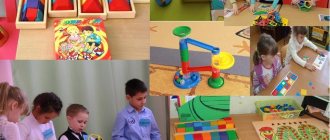People have long begun to think about the question why some people can easily solve complex mathematical problems or write essays, poetry, music, while others must make every effort to do this, and the result will not always be good. Why can some people draw a beautiful landscape or portrait, but they cannot solve a physics problem?
A person's abilities are determined by his intelligence. This is not one concept, it comes in several types. In psychology, there are 9 varieties that have their own character traits and predisposition to science.
Gardner's theory
In 1994, psychologist Howarth Gardner created the theory of multiple intelligences. It has become an alternative to the classical view of the nature of intelligence, as an individual’s ability to think logically.
Gardner believed that it is the multiple nature of intelligence that allows an individual to choose a profession or hobby for which he has the most pronounced predisposition.
The psychologist described intelligence not as a specific device that is located in the head, but as a potential that allows a person to use all his abilities in a certain situation.
Gardner identifies 7 types of intelligence in psychology, which do not depend on one another and can exist as separate systems with their own rules. Over time, the theory was interpreted, refined, and several more types were added.
Highlight:
- natural (naturalistic);
- musical;
- logical-mathematical;
- existential (philosophical);
- kinesthetic (bodily);
- interpersonal (social);
- spatial (figurative);
- linguistic (verbal);
- personal (internal).
Gardner's theory allowed us to take a fresh look at the concept of talent, ability and intelligence. The psychologist argued that different people have different types of intelligence. Therefore, if at school some students have a penchant for exact sciences and are considered smart, and those who easily find a common language with other children are considered chatterboxes and slackers, then this is wrong. Different types of intelligence are in demand in different professions.
Intelligence.
The human brain is the main organ with the help of which we are aware of the environment around us and interact with this world. All our behavior is determined by processes occurring in our heads. All information received through the senses is also processed and remembered by the brain, and stored in the far corners of our memory. Throughout the history of mankind, it has always been important for people to know how high the intelligence of a particular person is. But methods for assessing intellectual abilities began to appear only in the middle of the 20th century.
Intelligence is the ability of an individual
In an attempt to measure the level of brain development, the German-British psychologist Hans Eysenck came up with the concept of IQ testing and began to apply it in practice. And, we must pay tribute, this method is still popular to this day. However, the essence of Eysenck testing comes down to identifying a person’s logical thinking and analytical abilities. And many scientists did not agree with such a one-sided approach to identifying human intellectual capabilities. One of these scientists was Howard Gardner, a professor at Harvard University, who proposed not to reduce all people to one standard, but to consider that all people are smart in their own way, and on the basis of this postulate he developed the theory of “multiple intelligences.”
He identified nine types of intelligence that influence how we work with information. His theory explains why everyone performs differently at the same tasks.
One way or another, debates in the global scientific community regarding the study of the functional asymmetry of the human hemispheres of the human brain do not subside to this day, and there is not even a hint of consensus on this issue) Nevertheless, Gardner’s theory looks very impressive, and it has taken its rightful place in in the minds of inquisitive people, without displacing Eysenck’s theory, about which mountains of articles have been said and written, so our article will focus specifically on the “theory of multiple intelligences”
Natural
This type determines a person’s ability to interact with nature: to feel the animal and plant world. A person notices everything that is around him. He is interested in exploring plants, studying animals, their habits, classifying species, monitoring the weather, collecting butterflies or minerals.
A person with natural intelligence loves nature and outdoor recreation. For him there is no better holiday than going to the forest, to the lake or to the mountains. This ability was considered a gift by our ancestors. It was possessed by great hunters, berry and mushroom gatherers.
Despite the fact that such an ability is becoming a thing of the past, due to the development of technology, which has become firmly established in life, people will find themselves in such professions as:
- livestock farming;
- botany;
- gardening;
- astronomy;
- chemistry;
- cooking;
- agronomy;
- archaeologist.
This type of intelligence used to be incredibly in demand. After all, our ancestors interacted closely with nature: they collected herbs, fruits, and hunted. This gift was considered incredibly useful, and its owner received respect.
Musical
A person with musical intelligence has developed hearing and a sense of rhythm. He easily grasps and distinguishes musical tones and melodies. He can easily sense a false note and pick out the chords of a song by ear.
He loves music, studies different styles, he likes to play musical instruments, because it comes easy. Talent is manifested in composing songs and poems, playing musical instruments, and singing. Such people easily improvise and become the life of the party.
Musical intelligence manifests itself earlier than others. Babies begin to respond to songs and move in rhythm before they begin to walk and talk. It's rare, but there are real geniuses like Yo-Yo Ma, who performed his first concert at the age of 6 years.
Professions:
- conductor;
- composer;
- arctic fox;
- musician;
- DJ;
- director;
- music producer.
If a person has not only musical, but also mathematical abilities, then one can easily become a drummer. After all, he must not only feel the rhythm, but also be able to count quickly.
Logical-mathematical
People with this ability easily understand all problems related to numbers and mathematical concepts. They will find themselves in mathematics, computer science or logistics. Such abilities allow you to easily solve complex problems and carry out calculations, even with a large amount of data. These abilities are also suitable for detectives.
A person with logical thinking loves numbers more than live communication with other people, so he is unsociable. He is interested in solving logical problems, puzzles, and equations. Many become programmers.
People with a logical-mathematical type of intelligence are characterized by rapid recognition of connections between two objects, consistent reasoning, and noticing the smallest details. Suitable professions:
- mathematician;
- detective;
- composer;
- economist;
- conductor;
- physicist;
- engineer;
- financier;
- analyst.
Intelligence: classification of types
Do you still think that intelligence is just IQ ? Unfortunately, the traditional “ intelligence test ” reveals only three categories of abilities: verbal (speech), mathematical and visual-spatial. In the classical school system, these three types of intelligence are trained the most. But such a scale greatly limits our understanding of intelligence, talent and ability.
Is it possible to say that a great mathematician is smarter than, for example, a great composer? Two decades ago, psychologists took up this issue and identified seven main types of intelligence.
In 1994, psychologist Howard Gardner proposed a new concept of intelligence. He identified seven types of human intelligence , which are not limited to the ability to count well or write correctly.
Gardner's theory gave people a new perspective on the concept of talent, intelligence and ability. Is it fair that children with a penchant for exact sciences are considered smart at school, while children who are excellent at building relationships with peers are usually called slackers and talkers?.. No, says Gardner. These children simply have a different type of intelligence - emotional, or interpersonal. It cannot be said that nature deprived them of their abilities: people with developed emotional intelligence have every chance of becoming successful in life. Recent studies show that individuals with such talent advance best in their careers and are much more likely to become managers or “deputies.”
Logical-mathematical intelligence reflects our ability to manipulate numbers and think rationally. This type of intelligence is also actively involved in all school programs. A person with developed mathematical intelligence will make an excellent mathematician, physicist, accountant, financier, computer programmer, and logician. It is rightly believed that “mathematics develops the brain.” However, if a person does not have outstanding mathematical abilities, this does not mean that he is stupid. Most likely, he simply has a completely different type of intelligence.
Visual-spatial intelligence speaks of the talent to perceive the world visually and analyze this information, to be receptive to color, shape, lines, and relationships between objects in space. Children with such abilities do well in geometry and drawing. Architects, artists, and designers have this type of intelligence. Such people are well versed in the area and can be tour guides or travelers. In combination with developed logical intelligence, visual-spatial abilities can make an excellent doctor, chemist or biologist: natural science disciplines require the ability to think logically and at the same time imagine complex structures - molecules, organs and their systems, the structure of tissues.
Verbal or linguistic intelligence is developed among writers, journalists, and speakers. It will not interfere with politicians and, in general, all people whose activities require public speaking and communication with other people. This is proficiency in oral and written speech, a “feeling” of language, the ability to construct beautiful sentences and coherently express one’s thoughts. The current education system actively appeals to the development of this type of intelligence: at school, we first of all learn to read, write, and retell what we read.
Bodily-kinesthetic intelligence , unfortunately, is trained much less in modern schools. But it is from children with kinesthetic abilities that athletes, ballerinas, actors and actresses grow up. The ability to control your body is useful not only on stage and in sports - this talent (combined with visual-spatial abilities) is also necessary for surgeons, artisans, mechanics and sculptors.
Musical intelligence is the ability to perceive, evaluate and create music, having good hearing, a sense of rhythm and harmony. You probably already guessed that people with good musical intelligence become excellent performers, composers, sound engineers and music critics. This intelligence (combined with bodily-kinesthetic) is required by everyone who wants to sing and dance well.
Emotional or interpersonal intelligence is related to the art of communication. This is the ability to distinguish between the moods, intentions and feelings of other people. It is required by everyone whose work is in one way or another connected with communication: psychologists, teachers, customer service managers, sales specialists, and managers. In today's connected world, having emotional intelligence provides great benefits in many areas. Therefore, if your teenage child has dozens of friends, constantly chats in class and texts, do not rush to scold him for his frivolity and careless attitude towards studying. It’s better to enroll him in psychological courses or “slip” him a book about self-presentation skills and the ability to negotiate. This will make him think about relationships with teachers, responsibility, and at the same time how to wisely use his talents in adulthood.
Existential or spiritual intelligence - people with this gift are not afraid to ask questions of existence, life and death. Usually people with this type of intelligence again become psychologists, as well as philosophers and priests. Many writers have this type of intelligence. Despite its apparent “uselessness,” this talent gives people depth of thought and feeling and teaches them to think big. This makes them interesting conversationalists and thoughtful people, which is valuable in almost any area of life.
After the theory proposed by Gardner, psychologists went further, identifying several more types of intelligence - for example, intrapersonal (the ability to introspection, introspection and self-improvement), creative (the ability to see things in a new light, propose non-standard ideas, find new ways to solve problems), sensory- sexy (no comments required).
Probably, it is possible to specify the types of intelligence ad infinitum . The main thing is to understand that every person has a lot of abilities hidden in them. Their combination gives birth to a unique personality with its own strengths and weaknesses. Incapable people are those who were not lucky enough to discover and develop their talents.
Source:
https://www.myjane.ru/articles/text/?id=12081
Additionally:
- Howard Gardner. Structure of the Mind: The Theory of Multiple Intelligences
- 10 types of intelligence
- Theories of intelligence
- Psychology of intelligence: research paradoxes
- Psychology of General Abilities
Existential (philosophical)
It is considered one of the most complex types of thinking. People with such abilities are characterized by an interest in global issues that relate to the essence of man and the meaning of his existence. Such individuals can put forward a new theory about life and death, the emergence of mind, the origin of the universe.
Manifestations include spiritual practices and religious beliefs. Philosophical intelligence is inherent in all people to one degree or another. After all, everyone wonders about their own purpose, the meaning of life, why sometimes bad things happen, about karma. But it is precisely existential thinking that is characterized by global questions: does God exist, where did life originate, what will happen after death.
The following profession is ideal for such people:
- policy;
- psychologist;
- philosopher;
- historian;
- archaeologist;
- writer.
A person with such a mindset argues and argues a lot. He seeks answers to questions about the meaning of life, studies other people and their characters. He is interested in various theories.
Art therapy, or Healing through art
Discussion: 3 comments
- Tatiana:
I'm wondering, how can I determine exactly what type of intelligence I have? I just read and find characteristics that are characteristic of me in several of the types presented.
Answer
Vyacheslav:
Now an interesting direction is developing in determining the type of human intelligence and choosing a profession according to the theory of “Multiple Intelligences” by Howard Gardner. For example, as a philosopher, I am involved in this technique. Patterns on the fingertips are scanned (fingerprinting), and a “Psychological portrait” of the person is compiled.
Answer
Ilya:
How are you doing?
Answer
Kinesthetic (bodily)
People with this type of thinking perceive the world through their body and can learn with its help. It helps them express their thoughts or attitude towards a subject. Individuals with kinesthetic intelligence move a lot, play sports, dance, and martial arts. They cannot sit still for a long time; they constantly need to do something.
They perfectly feel the space and objects around them, feel time. They stand out for their excellent physical shape and actively use spatial thinking.
Best professions:
- athlete;
- surgeon;
- choreographer;
- dancer;
- conductor;
- military;
- artist.
Such people were especially valued in Ancient Rome and Greece, where a beautiful athletic body was idolized. It was believed that a healthy body is the key to a healthy mind.
Interpersonal (social)
This is a pretty interesting type of thinking. Those with well-developed interpersonal intelligence are able to easily feel other people and have a high degree of empathy. It is typical for them to easily get along with new people, to be able to captivate them literally from the first word. They use different methods of communication: verbal and non-verbal.
They easily sense the mood of the interlocutor, so it is easy and pleasant to communicate with them. They often become leaders in the company, because they can understand those around them, help and always support others.
They like to be around other people, work with them, study, and be in constant contact. They easily understand the mood of the interlocutor, his needs and desires. They can explain the behavior of friends and acquaintances. They have a kind heart and often help others. They know how to control their own emotions.
Suitable professions:
- teacher or educator;
- psychologist;
- artist;
- HR specialist;
- Social worker.
Interpersonal intelligence. 9 types of intelligence
Natural intelligence
Determines a person’s ability to sense animals and plants. This ability was considered a gift in our evolutionary past. The great primitive hunters and gatherers had this gift. Now this type of intelligence continues to play an important role in some industries, and without it it is impossible to become a professional botanist or agronomist. Modern society, of course, has little interest in this type, because we are increasingly moving away from nature.
Musical intelligence
Musical intelligence is the ability to discern pitch, rhythm, timbre, and tone. This type of intelligence allows us to feel, create, and reproduce music. Composers, conductors, musicians, vocalists and listeners with keen ears could not do without it.
It’s interesting that only musical intelligence + an aptitude for mathematics can produce people like drummers. They tend to filter external sound very well and have good and fast counting.
Logical-mathematical intelligence
Logical-mathematical intelligence helps to count and solve complex mathematical and logical problems. Logical intelligence is usually well developed among mathematicians, scientists and detectives.
Young people with this type of intelligence are not inclined to communicate; they are usually closed. They are more interested in numbers, experiments and logic puzzles.
Existential Intelligence
An intelligence that potentially assists an individual in grappling with the deepest questions of human existence. For example, such people can put forward new theories about the meaning of life, the possibility of immortality and how people appeared on planet Earth.
Interpersonal intelligence
Interpersonal intelligence is the ability to understand and interact effectively with other people. It involves effective verbal and nonverbal communication and the ability to quickly notice differences between people. These people also have a good sense of the mood and temperament of others.
Teachers, social workers, actors and politicians by definition should have this type of intelligence, but... Young people with developed interpersonal intelligence often become leaders among their peers, not because they are stronger, but because they are interesting to communicate with, and it seems that they understand everyone's feelings.
Bodily-kinesthetic intelligence
Bodily-kinesthetic intelligence is the ability to manipulate physical objects and use various physiological skills. Such people are well oriented in time and space. Athletes, dancers, and surgeons must have well-developed bodily-kinesthetic intelligence.
Linguistic intelligence
Linguistic intelligence is the ability to think and clearly interpret your thoughts, even very complex ones, into words that everyone can understand. Linguistic intelligence is important for poets, writers, journalists and public figures. Young people with this intelligence enjoy writing, reading, telling stories and solving crossword puzzles.
Editorial: Life after brain tumor removal
Personal intelligence
Personal intelligence is the ability to understand yourself, as well as your thoughts and feelings, and use this knowledge in the process of planning your life. This type of intelligence allows a person to sensibly assess their capabilities and plan expenses wisely.
Obviously, such people are good psychologists. But at the same time, these people can be very shy.
Spatial intelligence
Spatial intelligence is the ability to think in three dimensions. Such people are well aware of the place and can mentally imagine what awaits them around the corner. They easily remember a picture, precisely a picture, of the place they are asked about or about which they are remembering at the moment.
Sailors, pilots, sculptors, artists and architects are carriers of developed spatial intelligence. People with this intelligence love mazes and puzzles. They can sit for hours drawing.
Spatial (figurative)
A person thinks and remembers a picture. Such people have excellent visual memory for faces, places, and objects. They can even reproduce in their minds a page of a book with pictures and paragraphs inside. They remember well what they have learned, but if the material is presented orally, it is almost immediately erased from memory.
They notice details that no one usually pays attention to. They can easily sense objects in space. For example, rearrange a room in your thoughts, or sketch a picture. They simply find their way even in an unfamiliar city. Such people have a well-developed inner world, so they often engage in various types of art.
They operate with thought processes in 3 dimensions. Even having been in a room once, they remember the situation.
A child with spatial thinking loves to put together puzzles and go through various labyrinths and confusions. He has a well-developed imagination.
The most suitable professions for an imaginative personality type:
- architects;
- pilots;
- sculptors;
- military;
- artists;
- sailors;
- drivers;
- engineers;
- builders.
Types of multiple intelligences and examples according to Gardner
In his 1983 publication, Multiple Intelligences, Gardner affirms the existence of seven types of intelligence, but currently we can list eight types of intelligence according to Howard Gardner.
Let's look at each of these multiple intelligences with examples:
Linguistic-verbal intelligence
Verbal intelligence is that which can be observed in people who easily express, understand and develop complex verbal messages. Thanks to linguistic intelligence, we can more easily learn new languages, in such cases areas of the brain such as Broca's and Wernicke's (responsible for language production and understanding) are usually more developed.
It is the ability to use words effectively, manipulate the structure or syntax of language, phonetics, semantics and their practical dimensions. We can find this type of intelligence in children who love to write stories, read, play with rhymes, tongue twisters and those who easily learn other languages.
Physical-kinesthetic intelligence
This is the ability to use one's own body to express ideas and feelings, as well as their abilities of coordination, balance, agility, strength, flexibility and speed, as well as proprioception and tactility.
It is valued in children who excel in sports, dance, language and/or construction work using a variety of concrete materials. Also in those who are skilled in the execution of instruments.
From the editor: What to do if you suffer from insomnia
Logical-mathematical intelligence
This is the ability to efficiently process numbers, relations and logical patterns, as well as other functions and abstractions of this type.
The children who developed it easily analyze situations and problems. They are enthusiastic about numerical calculations, statistics, and budgets.
Spatial intelligence
It is the ability to confidently evaluate visual and spatial representations, graphically represent ideas, and increase sensitivity to color, line, form, figure, space, and their relationships.
It is children who learn best with graphics, diagrams, and pictures. They love to make concept and mind maps. They understand plans and sketches very well.
Musical intelligence
It is the ability to perceive, discriminate, transform and express the rhythm, pitch and tone of musical sounds.
Children who confirm this are attracted to the sounds of nature and all kinds of melodies. They like to follow a compass with their feet, rhythmically hitting or shaking an object.
Interpersonal intelligence
This is the ability to discern and perceive the emotional states and interpersonal attributes of others and to respond effectively to such actions in practice.
Children who like to work in a group, who are persuasive in negotiations with peers and older people, understand their partner.
Intrapersonal intelligence
It is the capacity for self-knowledge and, therefore, for action on the basis of this knowledge, for an accurate self-image and the capacity for self-discipline, understanding and self-love.
This is evidenced by thoughtful, sensible children who are usually advisors to their parents. Howard Gardner uses the example of an autistic child to illustrate this type of damaged intelligence: “The child may not be able to refer to himself. At the same time, he often displays extraordinary abilities in the musical, spatial or mechanical fields."
Naturalistic intelligence
The latest addition to the list of multiple intelligences is naturalistic intelligence (added in the 1995 edition). It is defined as the ability to distinguish, classify and use elements of the environment, objects, animals or plants. The same urban environment as suburban or rural. It involves the skills of observation, experimentation, reflection and questioning in our environment.
Occurs in children who love animals and plants; who recognize and love to explore the features of the natural and man-made world.
Linguistic (verbal)
A person expresses his own thoughts very correctly and competently, transforms complex verbal structures. He loves to communicate and knows how to do it in such a way that others freeze with their mouths open, listening to his stories. Constantly shares his own thoughts and impressions. Can easily convince another person by citing sensible facts. He can lead, become a leader, teacher and friend.
Individuals with linguistic intelligence are characterized by the ability to communicate with other people not only in person, but also on paper. Therefore, the verbal type of thinking is inherent in journalists, writers, and politicians. Such people can convince you to participate in promotions, developments, and persuade the client to make a purchase in his store.
This type of intelligence is suitable for professions:
- journalist;
- writer;
- copywriter;
- teacher;
- historian;
- analyst;
- translator;
- actor;
- speaker.
Even people with “dyslexia” who are verbal thinkers can become actors, entertainers, speakers, or comedians. Like Keira Knightley, Tom Cruise, John Lennon and many others.
Useful tips for developing intrapersonal intelligence
Many people live on autopilot. They rush from one activity to another, barely aware of what is happening around and inside them. If you take the time to reconnect with yourself, you will notice how your eyes open and a feeling of freedom appears inside. It is possible to develop intrapersonal intelligence. Here are some tips to help you do this:
1
Keep a diary
A diary helps you connect with yourself on a deep emotional level and see events happening around you from a different angle. Also, its regular maintenance increases erudition and concentrates on personal goals. If you think journaling is a thing of the past, use a voice recorder instead.
2
Redirect your talents to yourself
Very few people are naturally good at everything, and that's okay. But everyone has some strengths, even if you don't realize them. You may be truly tolerant of small children or rude people, but less compassionate with yourself when you make mistakes. You may be great at solving the problems of others, but you find it difficult to solve personal problems.
Typically, people use emotional skills to help others, but unfortunately do not apply them in their own lives. It gives the impression that you lack ability, when in fact it is simply easier for you to benefit others. But you deserve similar support.
Start applying powerful skills to your own life by thinking about what you would do for someone else in your situation. For example, if you encourage a friend to be persistent and not give in to challenges, apply that advice to yourself and become more persistent.
3
Practice a positive attitude towards yourself
The way you think about yourself has a big impact on the development of intrapersonal intelligence. Self-criticism may seem like a good way to motivate yourself and hold yourself accountable for mistakes, but more often than not it has the opposite effect. Instead of beating yourself up, praise yourself for your achievements. This will give you the confidence to work on your weaknesses.
4
Meditate
Meditation teaches you to be aware of and accept what you think and feel without falling into the trap of negative thoughts or self-esteem. Its key benefits are the ability to relax, relieve stress and improve sleep. Of course, these effects won’t directly help you reconnect with yourself, but they will definitely help improve your physical and emotional well-being. In turn, feeling mentally and physically strong will strengthen your inner resolve when dealing with difficult situations.
Meditation has another, more important benefit for increasing self-awareness. It teaches you to focus, which leads to improved concentration in all areas of life and helps you find new ways to solve problems.
5
Take care of yourself
Taking care of yourself is just as important as taking care of others. Grooming doesn't have to include trips to luxury spas. These could be little things that need to be included in your daily schedule.
Get rest and eat enough. This is the basis of self-care. Just go to bed on time and eat regularly throughout the day.
Move. Of course, it is not always possible to work out in the gym every day. Be sure to praise yourself for any physical activity you can do, even if it's just a 10-minute walk to work.
Learn to say no. This is a great way to show self-care. You don't have to please absolutely everyone, prioritize. If you constantly say yes, you will become exhausted. You may be surprised, but people around you appreciate the sincerity that you can show by refusing to do things that are too much for you.
6
Take time for self-reflection
Self-reflection can seem like quite a daunting task. It really just involves thinking about actions, choices, personal values, and other things that are important to you. As you reflect, pay attention to which habits work for you and which ones hinder your growth. This will help you find new ways to achieve your life goals.
7
Try new things
Change often causes anxiety. It seems safer to stick with the old algorithms and play it safe. But sticking to the same routines holds you back from alternatives that can meet your needs even more effectively.
Taking risks that lead to success increases self-confidence and encourages you to keep trying new things. Taking risks that don't work out leads to growth by developing grit and persistence because overcoming failure shows you are capable of keeping going and trying again.
Changes make it possible to get to know yourself much better and reveal previously unknown features of your personality.
8
Write down your goals
Goals say a lot about who you are as a person and what motivates you. They shape choices and lives. It is important to set goals for both the near and distant future. Celebrating even small successes, such as giving up a bad habit or reading daily, will give you strength as you move toward big goals that require long-term effort. Recognizing your victories builds self-awareness and also strengthens your courage to take big steps towards your dreams.
9
Take our online Self-Discovery program
With its help, you will understand what you want from life, find something you like, and be able to harmonize your relationships with colleagues and loved ones. All this is possible thanks to an individual approach provided by special tests and exercises. During the program, you will learn more than 50 characteristics of your personality from different areas of life, which will bring you closer to understanding your own motives and behavioral patterns.
If you can analyze your own behavior and thoughts, understand why you experience certain feelings, you are able to manage your life. Developed intrapersonal intelligence allows you to make wise decisions that determine the future. It helps you to always be motivated and not look for inspiration in the outside world in order to achieve success.
Friends, your closest person is yourself. Don’t try to run away from him, boldly look into his face, know the essence, accept the peculiarities and then you will undoubtedly take the path of prosperity.
Good luck!
We also recommend reading:
- Storytelling
- 6 Skills to Develop Emotional Intelligence
- Intelligence and its development: several recommendations
- Emotional Intelligence in Leadership
- How to become smarter: 4 types of intelligence according to Stephen Covey
- Cattell-Horn-Carroll theory
- What You May Not Know About Intelligence
- General Intelligence Factor
- Gardner's Theory of Multiple Intelligences
- Valentine's card from 4brain
- Signs of Low Emotional Intelligence
Key words:1Self-knowledge
Personal (internal)
The owner of this type of thinking easily understands himself, his emotions, thoughts. Always has his own opinion regarding this or that theory. He easily plans his own life, thinks through all the situations that are possible and will somehow affect his existence.
He never does something without thinking, he always soberly evaluates his own thoughts, evaluates his desires and capabilities. He plans his every step, sets a budget, and strictly follows the rules. Intrapersonal intelligence is quite emotional and shy, which can interfere with contact with other people.
Suitable professions:
- psychologist;
- Social worker;
- leading;
- teacher.
In conclusion, it is worth noting that each person has several types of intelligence. To make the most of your abilities, you need to develop several dominant abilities. By focusing on key intellectual abilities, you can easily achieve success.
conclusions
It is very important to take into account intellectual inclination when choosing a professional activity. It is not necessary that one type of intelligence dominate; several types can be harmoniously combined in a personality. Using special tests to determine the type of intelligence, you can easily determine your propensity for a particular type of thinking.
LiveJournal
- Related Posts
- How to become a smart person
- Logical thinking
- What is creative intelligence?
« Previous entry










